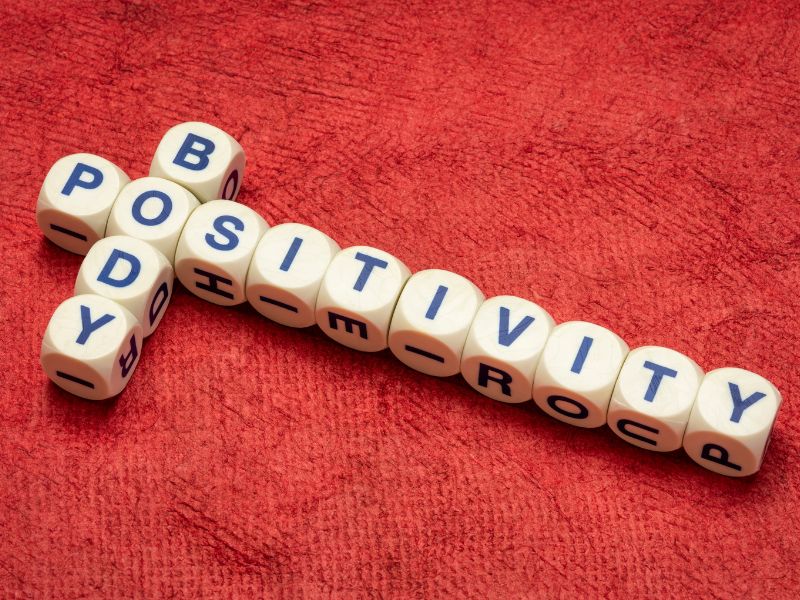As women, we’re constantly being told what to do, how to look, and what’s acceptable. We’re criticized for our weight, our clothes, and even the way we talk. It can feel like we’re never good enough, no matter what we do. So, when someone promotes body positivity and says to love your body no matter what it looks like – it’s a welcome change of pace.
Instead of feeling guilty or ashamed of ourselves, we can start to feel good about who we are. Yes, I like carbs, chocolate and coffee (not always in that order) and I do eat a carrot once every never. Society feels they have a right to comment on other people’s bodies as if they have a right to, like you eating THEIR food or something.
They’d rather criticize and condemn than accept and love, that right there is where the controversy comes in.
Body positivity movement origin
The body positivity movement aka fat acceptance movement started in the late 1960s [1] as a way to promote self-love and acceptance for people of all shapes as well as sizes. It’s about celebrating your unique body, no matter what society might say about it moreover making roads to end the culture of fat shaming. And I think that’s a really important message!

Why is body positivity important?
Body positivity is important even if you are not overtly over weight like I am, but have a mom body with pregnancy scars and stretch marks. When you embrace your flaws to feel good about yourself, you’re more likely to be confident and successful in life. Unfortunately, too many people are held back by negative body image because they think that they need to look a certain way in order to be happy or valued.
Perfection is over rated, with filters and photo shop; it is so easy for people to believe everything they see. Trust me, as a photographer, I know all about angles and perspective from behind the camera; I get the best shot then know how to edit to make my shots pop.
Well, not for pictures of myself though. Somehow everything I know goes flying out the window when I am in front of the camera and then I just look like a constipated SpongeBob (yes, I live in a pineapple under the sea ha-ha).
The truth is the body positivity movement has come under fire recently, with some people saying that it’s nothing more than a way to justify being overweight. While I can see where they’re coming from, I don’t think that’s what the movement is about though. Yes, it’s important to be healthy and take care of your body but that doesn’t mean you have to be a certain size or weight. It just means that you have to be flaw-some!
I believe it is about accepting yourself for who you are – flaws and all. It’s about recognizing that every body type is beautiful, no matter what society might say. That’s a message we all need to hear.
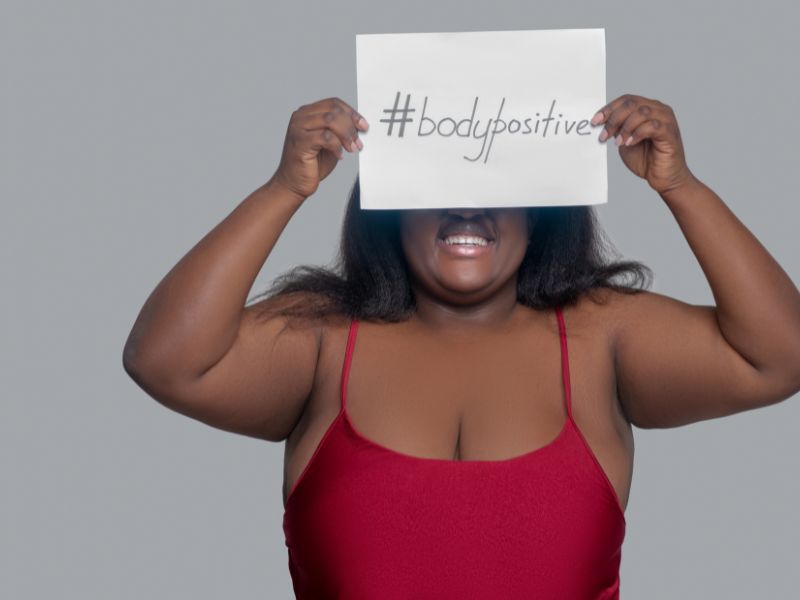
What does body positivity actually mean?
Body positivity is the fight against societal anti-fat bias, fat phobia, and systemic fat oppression [1] and it often gets confused with body acceptance (the idea that all bodies are good bodies). I like to combine both as I am not necessarily in the size 12+ category but I like the word positivity in regards to my body.
Hence to me, body positivity is an inclusive term with body acceptance/neutrality even though it is not exactly that, both are about accepting as well as celebrating your body.
Why is it important to have a positive body image?
I suffered from an eating disorder due to depression and anxiety so my weight was always problematic. This contributed to my depression and I learned that the link to my happiness was my body image. Learning to break the cycle became so much more imperative when I had my daughter. I did not want my issues manifesting in her as this happens, parents are supposed to be role models for our kids and this is especially true for mother/daughter as well as father/son.
Having a positive body image creates a better relationship to food and exercise. You treat your body better when you respect it.
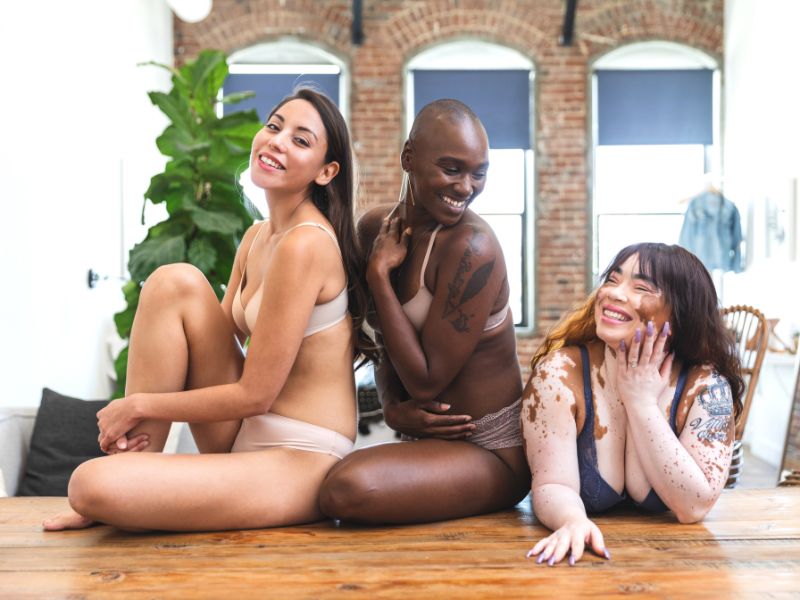
How does body image affect self-esteem?
Body image can have a big impact on self-esteem. If you have a negative body image, you’re more likely to doubt yourself and your abilities. You might not feel worthy of anything but if you have a positive body image, you’re more likely to feel confident and capable. I push this with my teenage daughter, pushing positive parenting by being a better role model as I believe that change starts with oneself.
If I want her to have a better body image and self esteem then I first need to address it with myself.
The bottom line is that body positivity is essential because it helps people to feel worthy: worthy of love, worthy of respect and worthy of faith, in oneself. When you feel positive about your body, you gain confidence within yourself and your abilities.
How can body image affect personal health?
Body image can affect personal health in a number of different ways, for example, people who have negative body image are more likely to engage in unhealthy behaviors like crash dieting or over exercising [2]. People with negative body image might also suffer from mental health problems like depression and anxiety [3]. On the flip side (logically), people with positive body image are more likely to take care of themselves and make healthy choices.
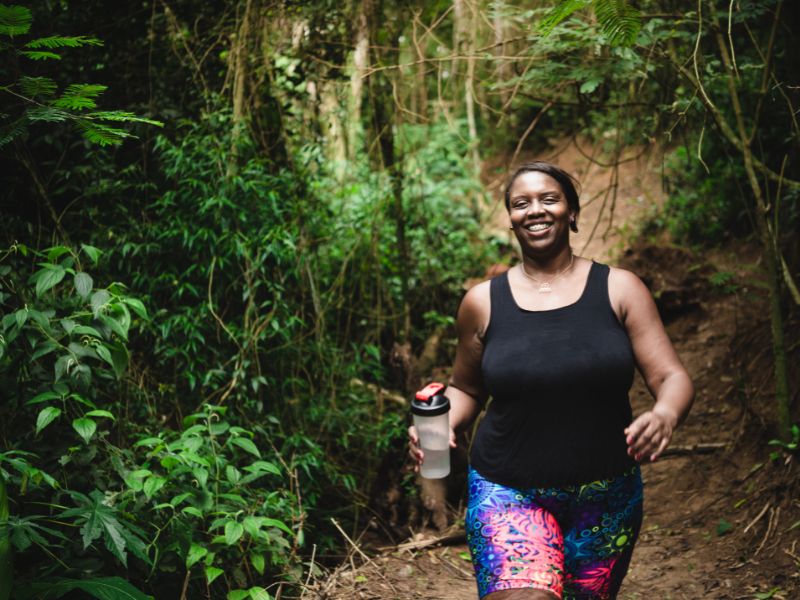
So, what’s my take on all of this whole body positivity controversy?
I think it’s important to be healthy and take care of your body because you only get one body, so you should treat it with love and respect, right? If you want to make changes to your appearance, that’s OK too! Just make sure that you’re doing it for yourself and not because you think you need to look a certain way.
My motives to my personal health and body image have changed so much over the years. I used to emotional eat and get so tired of clothes. That is not to say that I wanted to walk around naked but more like I was tired of my clothes being so tight that I thought I would die of suffocation. Then, I shifted for a time, to being obsessed with the scale, wanting to be thin and to look better in pics, thinking that will make me more worthy.
Over time, I realized that it doesn’t matter how I look. I still lost my beautiful boy; still got a stroke and still suffered depression.
My attitude had to change again! So now, I look at my body as a vessel that I HAVE to take care of if I don’t want to die. Also, I have to keep my visceral/inside fat under control or else I may get another stroke (I have HBP as well as high cholesterol, its real fun).
What is not body positivity?
Here is the thing, some people often think that body positivity is about being overweight or unhealthy, it is not. Also it is not about making excuses for bad behavior and about blindly accepting your appearance without trying to improve it. Yes, the “body positivity movement is about accepting and celebrating your body, no matter what shape or size”. However, that doesn’t mean you have to let yourself go and eat all things dripping in cheese or oozing chocolate 24/7.
Granted, I LOVE food, seriously not kidding. I can’t even begin to imagine not eating my favorite foods, yet you won’t catch me eating it all day every day (although to be honest, that would be great!). Like my daddy (whom I get my appreciation of cooking & eating) who excessively indulged more than occasionally over the years and at the age of 60 odd, had to get a heart procedure done.
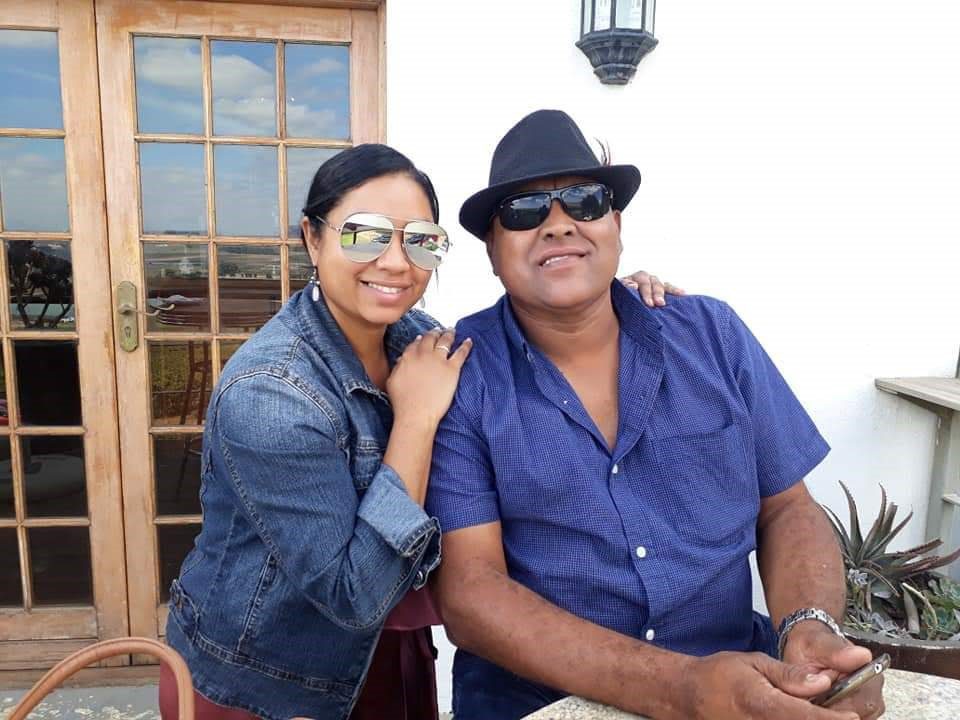
My dad is doing fine now but is still in danger of open heart surgery if he doesn’t behave from now on. This was all due to all the fatty storage deposits [4] from my dad’s years of indulgence. I have high blood pressure and high cholesterol like my dad so this was also a real shake for me to get my act together with my relationship with food.
Body neutrality vs. body positivity
As I touched on above, body neutrality is the idea that you can be happy without being obsessed with your appearance. It’s about focusing on what you can do, not how you look. On the other hand, body positivity is all about celebrating your unique body and appearance. It’s about learning to love yourself- imperfections and all.
So, which is better? Body neutrality vs. body positivity -I think it depends on the person. If you’re struggling with negative body image, body neutrality might be a good place to start but if you’re ready to celebrate your body, then body positivity is the way to go.
I personally feel that being body positive is touched on in each differentiation people want to break down and at the end of the day, feeling good in your own body is the whole point.
Body positivity vs. fat acceptance
There’s also a lot of debate on social media about the difference between body positivity and fat acceptance. In my opinion, I think that there is an important distinction to make. Body positivity is about accepting and celebrating your body and fat acceptance is about accepting and celebrating only those who are overweight or obese.
I think body positivity is the more inclusive term, because it applies to everyone, regardless of their size. Fat acceptance is important as well, but I think body positivity is the more encompassing term.
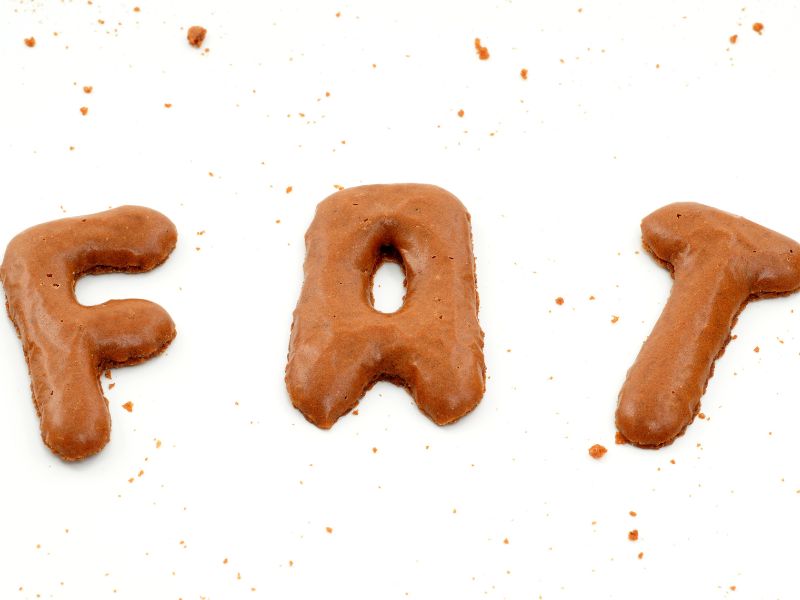
Is promoting body positivity toxic?
One of the biggest criticisms of the body positivity movement is that it’s an excuse to be unhealthy and I can see where this criticism comes from. There are definitely people who use the movement as an excuse to be overweight or obese. They might say things like, “I’m body positive, so I don’t have to lose weight.”
But this is not what the body positivity movement is about. It is celebrating your body-type (no matter the shape or size) and it is not about making excuses for being unhealthy.
So, if you’re using it as an excuse, then you’re missing the point and you are toxic. The body positivity movement is about being YOUR best self, YOUR best shape and YOUR best weight.
My final thoughts on this
I’ll be the first to admit that my take on body positivity is heavily influenced by my personal experiences also with my weight gain and loss. But, I also think it’s important to remember that everyone has a unique perspective, shaped by their own individual life experiences.
So, while I may not always agree with everything that comes under the banner of “body positive”, I do believe in the underlying principle of accepting your body just as it is.
What are your thoughts on the body positivity controversy? Do you think there are aspects of the movement that could use some improvement? Let me know in the comments!
[wpforms id=”1666″ title=”true”]
